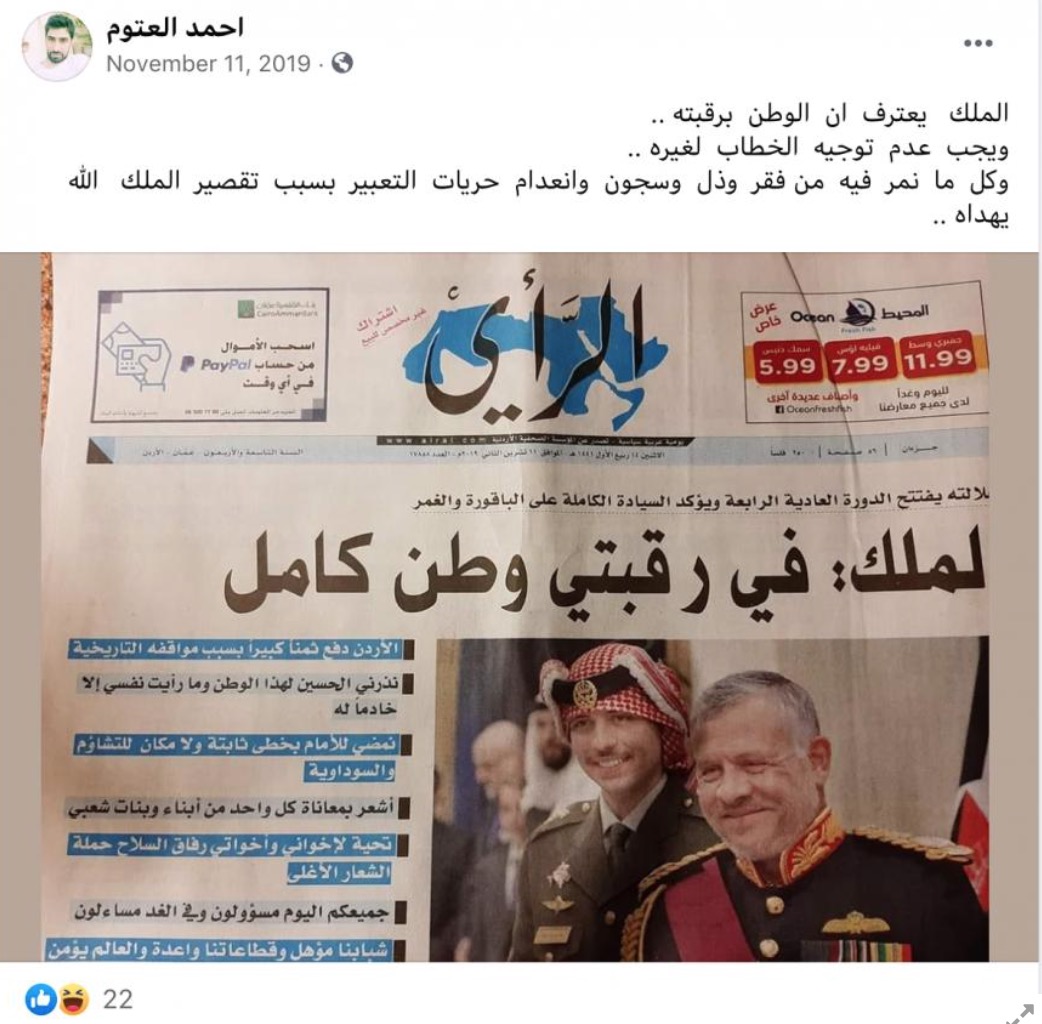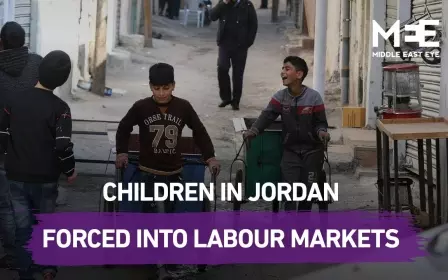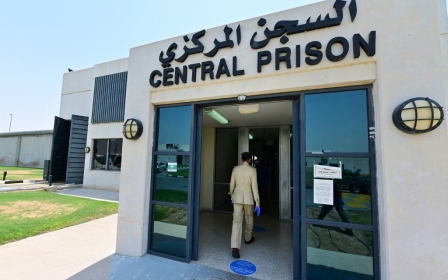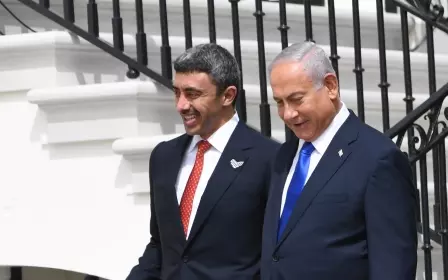UAE urged to free Jordanian imprisoned for highlighting corruption in Amman
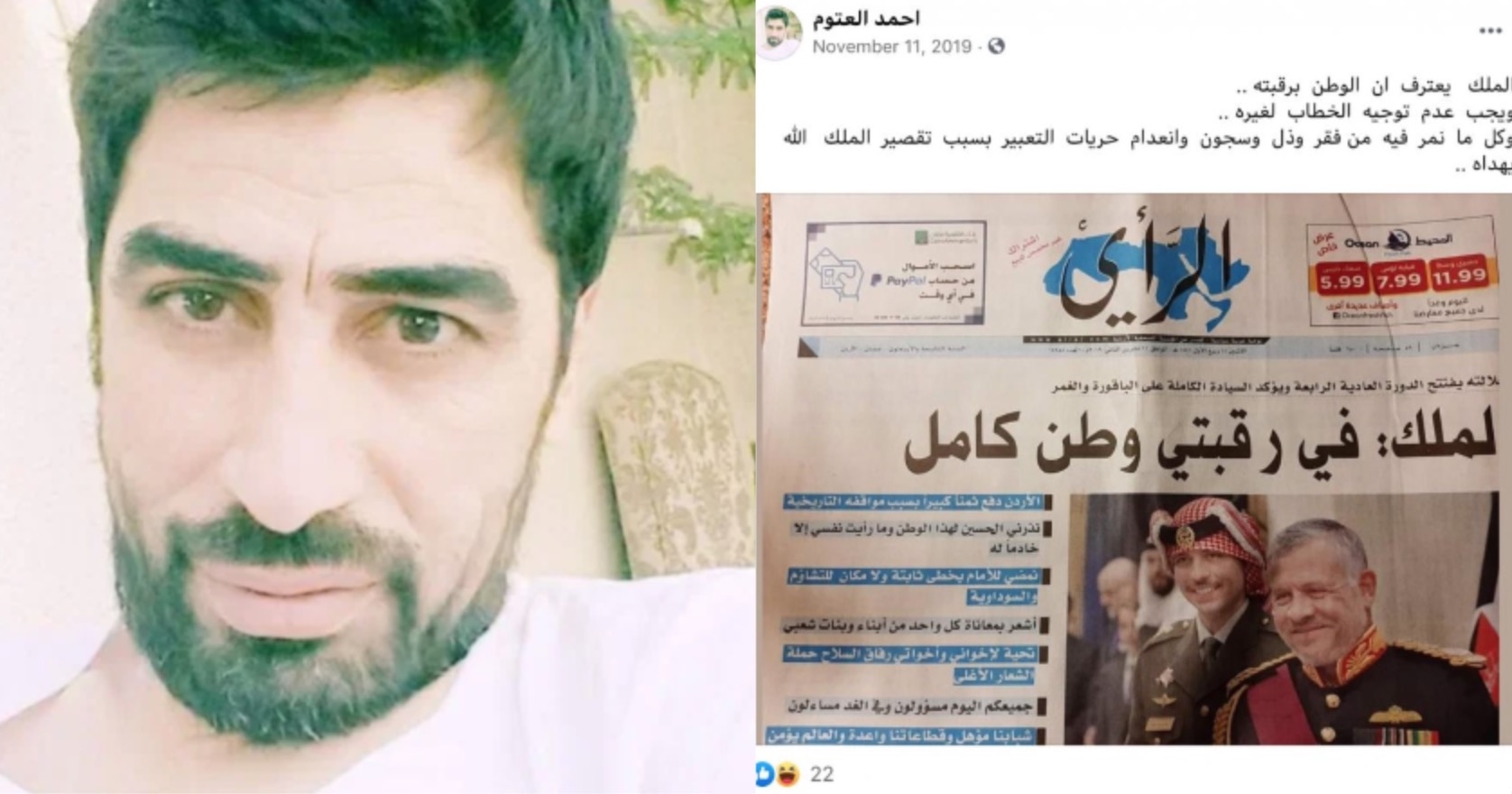
Human rights organisations have this week urged the United Arab Emirates to release Jordanian activist Ahmed al-Atoum, who was sentenced to ten years in prison in October because of comments he'd made on social media.
Atoum, 46, was a resident in the UAE for five years, where he worked as a teacher. He frequently used his Facebook page to voice his political opinions, commenting on the Jordanian government and its policies.
A relative of Atoum told Human Rights Watch that UAE security forces arrested him on 14 May 2020 as he was walking back from a supermarket in Abu Dhabi with his two children, aged nine and four.
'UAE authorities have long clamped down on public criticism of the UAE authorities and policies, and have apparently extended this repression to critics of other countries as well'
- Michael Page, HRW
According to MENA Rights Group, a Geneva-based legal advocacy NGO, Atoum was sent to al-Wathba prison in Abu Dhabi, where has was detained incommunicado for over two months, and was kept in solitary confinement until 14 January.
On 8 October 2020, the State Security Circuit at the Abu Dhabi Court of Appeals convicted Atoum on a number of charges, including deliberately carrying out an act against a foreign country that could damage political relations and publishing information on Facebook that promotes ideas that could incite or stir discord, and disturb public order and social peace.
New MEE newsletter: Jerusalem Dispatch
Sign up to get the latest insights and analysis on Israel-Palestine, alongside Turkey Unpacked and other MEE newsletters
Atoum was also charged with using Facebook to publish information that endangered the security of the state and its supreme interests.
In 2019, Atoum posted about alleged corruption in the Jordanian monarchy on Facebook, and also wrote about restrictions on the freedom of expression in the country, as well as increasing poverty.
Michael Page, the deputy Middle East director at Human Rights Watch, said: “UAE authorities have long clamped down on public criticism of the UAE authorities and policies, and have apparently extended this repression to critics of other countries as well.”
Social media posts
In a Facebook post published in November 2019, Atoum shared an image of the cover of a newspaper with the headine "King: the nation is my responsibility", alongside comments saying the social issues in the country are down to the shortcoming of Jordan's King Abdullah II.
Translation: The king admits that his homeland is his responsibility, and that all talk should be directed to him alone. Everything we are experiencing, in terms of poverty, humiliation, imprisonment, lack of freedom of expression is down to the king’s failures. May God guide him.
MENA Rights Group said on Tuesday it has submitted a request to the UN Working Group on Arbitrary Detention to issue an opinion on the arrest.
“Atoum’s trial failed to comply with the international norms relating to the right to a fair trial, established in the Universal Declaration of Human Rights and the Arab Charter on Human Rights,” a statement on their website said.
At the time of Atoum’s conviction, many people took to social media to denounce his arrest and highlight his case.
Translation: A Jordanian citizen residing in the UAE has been sentenced to ten years because he criticised the Jordanian system of government. He has the right, as a citizen, to give his opinion. It’s not enough that those living in Jordan have their situation go from bad to worse, but the system reaches those outside the country too…
Translation: The Emirates has arbitrary laws in the field of human rights and arrests it’s residents and citizens based on these laws, just for expressing their opinions. The country has distorted its reputation and has lost the love and popularity among the Arab nations, which are now discontent with their politics. Who has benefitted?
In a report on Thursday, HRW noted the UAE has continued to invest in a soft power strategy to paint the country as progressive and tolerant, whereas authorities relentlessly clamp down on freedom of expression.
“Hundreds of activists, academics and lawyers are serving lengthy sentences in UAE prisons, in many cases following unfair trials on vague and broad charges that violate their rights to free expression and association,” HRW said.
Middle East Eye delivers independent and unrivalled coverage and analysis of the Middle East, North Africa and beyond. To learn more about republishing this content and the associated fees, please fill out this form. More about MEE can be found here.


